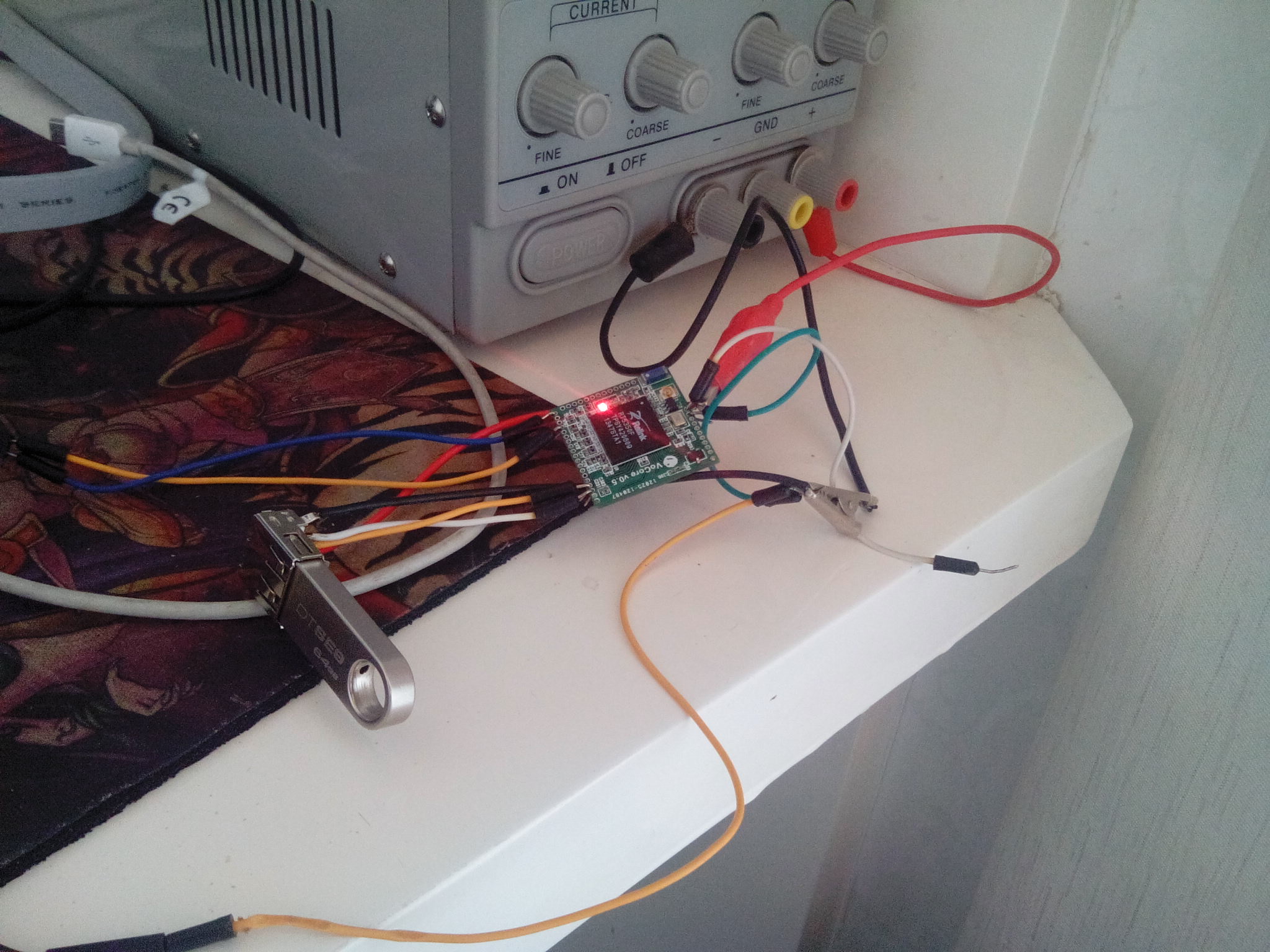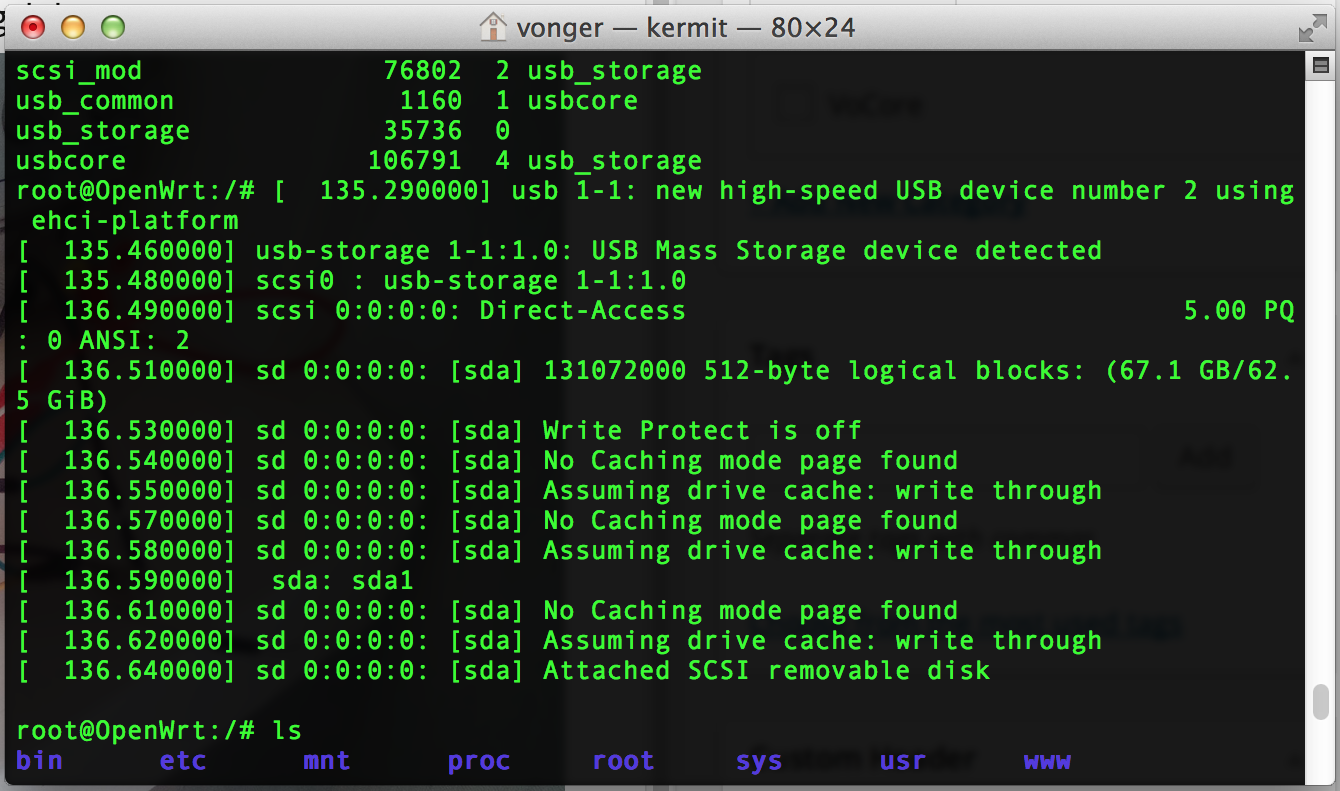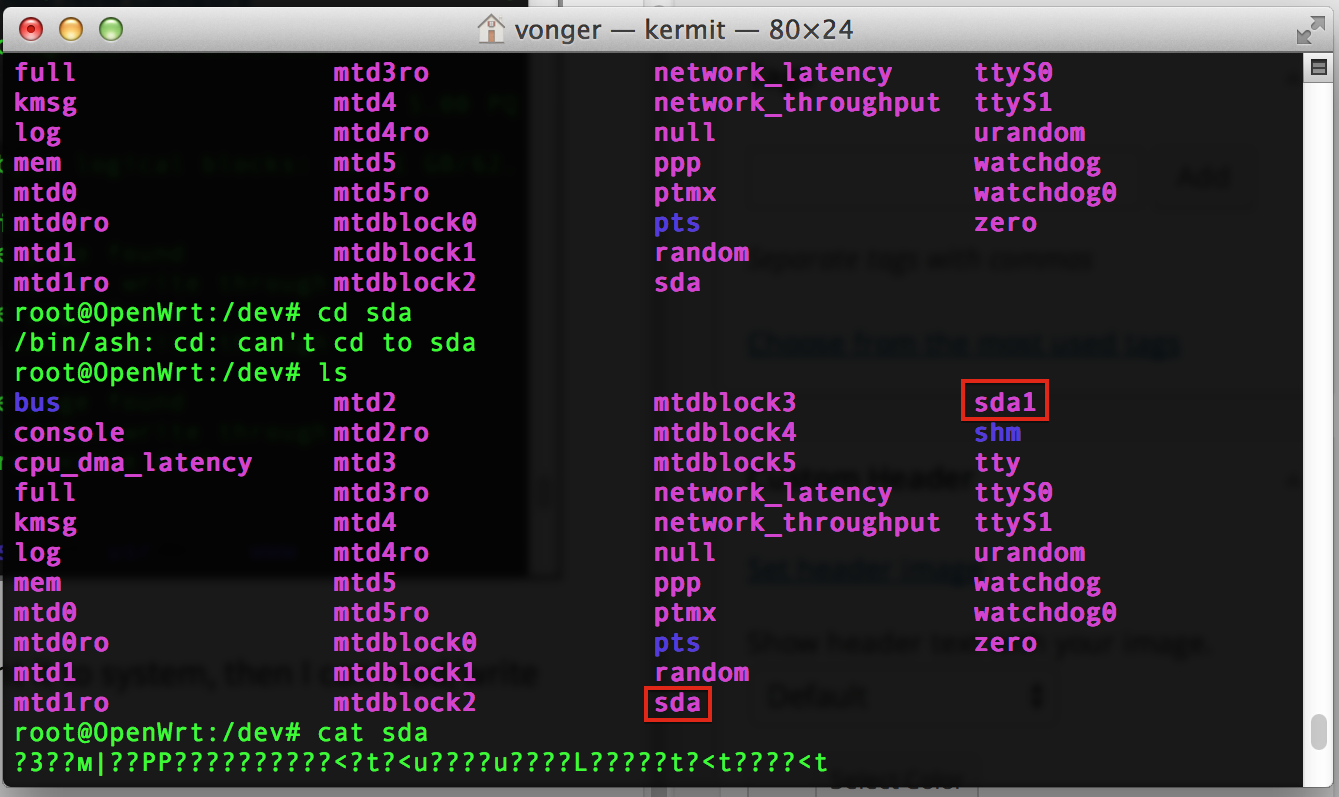Thank you for my friend Wu Tong at ShenZhen get this picture. 🙂
Hello, every reader, I made a simple forum for the coming alpha test by using bbPress.
Address is here: http://vonger.cn/?forum=vocore-alpha-test
This should be final version for alpha test. It might exist bug on hardware.
Download Link Here: VoCore.v1.0a.pcb
Garber File For Drill: garber.drill
Hope this will help you make the breakout board.
I made it easy 🙂 Most part are copied from Poray X8. Some uci config are really hard to understand, have to read code.
Patch for VoCore. I am new to make patch, not sure how to add new file to patch…hope this patch is in right format.
http://vonger.cn/upload/vocore.patch
Two new created files:
path: openwrt/target/linux/ramips/dts/
http://vonger.cn/upload/VOCORE.dts
path: openwrt/target/linux/ramips/rt305x/profiles
http://vonger.cn/upload/vocore.mk
Then delete tmp folder under openwrt, then run make menuconfig, VOCORE will be appear there.
And to use it as a module, you’d better change “Image configuration”->”Preinit configration options” -> IP address for preinit network messages(192.168.61.1), and Boardcast address for preinit network messages to (192.168.61.255).
Any idea about this openwrt config is welcome, I am new to that. Please leave a comment. 🙂
PS:
This is better, if my way is not working, please try this. Thank you, Markus Z 🙂
http://vocore.freshdesk.com/support/discussions/topics/1000033335
Next monday I will go to ShenZhen factory to make about 300pieces VoCore. Its PCB is ready. I will upload some photos of the PCB once my friend WuTong at ShenZhen get it. 🙂
This alpha version did not export SPI yet. Beta version will be almost same as final release version, still need about six weeks.
These days I am working on PayPal, they limited my account…Hope this thing be solved soon.
Someone said I will cost 20% on develop and 80% on other mess things, now I know he is absolutely right 😀
This is my USB test platform, looks like I make a mistake on the first version of dock, USB can not work, so I have to make this ugly thing 😀 Lucky me, everything works normal.
Lucky me, everything works normal.  in /dev/ the sda node appears, next, I need to mount it to system, then I can read/write the USB disk. But my USB disk is ExFAT format, and I did not compile that support to VoCore firmware, so need some more work.
in /dev/ the sda node appears, next, I need to mount it to system, then I can read/write the USB disk. But my USB disk is ExFAT format, and I did not compile that support to VoCore firmware, so need some more work.  Time for lunch. 🙂
Time for lunch. 🙂
I get a news from some website. It said MTK will public MT7688 which has embedded 256MB(or 256Mb?) memory, power consume will be cut to 40% about later 2014.
It will be expansive to embed memory on the chip…This will become an magic chip for hobbyist, just pray for the price lower, lower, lower…
Anyway, this will not effect current VoCore, if I use it to make a smaller VoCore but cost much more than raspberrypi+wifi, that is useless. And new chip will always have tons of bug, at least two years for the stable, I do not want to be the little white rat. 😀
This is NOT final version of v1.0, anything might be changed. 🙂